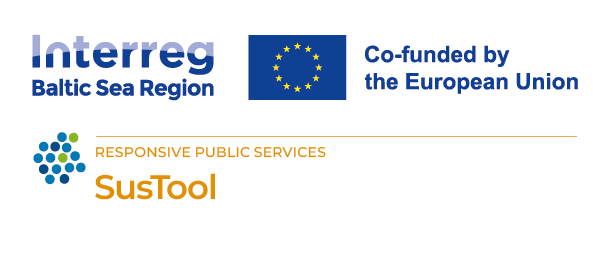Estonian Song Festival sustainability story – Conversation with Elike Saviorg
In this episode of the Zero Waste Estonia podcast, host Marianne Sepp sits down with Elike Saviorg, Head of Sustainability for the Estonian Song Festival, to uncover how one of largest cultural festivals is turning tradition into a model of environmental responsibility. Their conversation explores the role of green ambassadors, the bold shift to reusable tableware, and the groundbreaking efforts to cut food waste — including the rescue of 8.8 tons of soup.
When 110,000 people gather for a week of singing and dancing, the environmental footprint could be enormous. Yet the 2025 Song and Dance Celebration showed that even a festival of this scale can be organized sustainably. The event’s head of sustainability, Elike Saviorg, emphasizes: “If it’s possible to run the Song and Dance Festival sustainably, then any other major event can do the same.”
Green Ambassadors – from pilot to core part of the festival culture
The idea of “green ambassadors” was first introduced at the 2023 Youth Celebration. This year, volunteers were once again present on-site, guiding visitors in waste sorting and the return of reusable tableware.
According to Saviorg, waste management remains one of the trickiest areas, but progress is visible. The festival used four waste streams – bio-waste, mixed municipal waste, packaging, and deposit packaging. Bio-waste sorting worked best, while packaging caused some confusion, especially distinguishing between regular recyclables, deposit packaging, and Ringo’s reusable containers, available at 11 return points across the festival grounds.
Reusables and new solutions
All tableware was reusable, with a €deposit charged for each item. Visitors could either reclaim their deposit or donate it. In addition, 11 Ringo collection stations were set up across the festival.
“People are becoming increasingly familiar with reuse systems,” says Saviorg. “We especially see children and young people actively collecting and returning items.”
Vendors had to follow strict rules: single-use plastic tableware was completely banned, and menus emphasized reusable packaging. Even small details were carefully considered – wristbands made from recycled plastic fibers and while the lanyard holders were reusable and designed to be used again at future festivals.
Fighting food waste
Feeding nearly 40,000 performers every day was one of the biggest logistical challenges. “Soup must be prepared for everyone, but even with precise planning, there will still be leftovers,” says Saviorg.
This year, the team piloted cooperation with the Estonian Food Bank. The risk was high – once reheated, soup must be distributed quickly. But the pilot exceeded expectations: 8.8 tons of soup were donated.
“It was a true collective effort. We borrowed large containers from the Women’s Voluntary Defense Organization to transport the soup, since such equipment is scarce in Estonia. This really showed the spirit of a national celebration – everyone comes together for a common goal,” Saviorg reflects.
Water, cigarette butts, and biodegradable bags
Sustainability efforts also extended to smaller details:
Free drinking water was provided through stationary taps and mobile barrels, reducing single-use bottles.
Cigarette butts were collected in special bins and later processed into 3D printing filament by Fila.
Bio-waste was collected using new biodegradable bags containing lignin, a byproduct of Estonia’s wood industry.
International recognition for green efforts
Tallinn’s story “From Singing Revolution to a Revolution Against Waste” won the 2025 ITB Earth Award in Berlin – one of the most prestigious sustainability prizes in global tourism.
Elike Saviorg believes each festival is a step forward. “There’s still more to learn – for example, making packaging sorting simpler or planning food quantities even more precisely. But the international recognition proves we are on the right path.”
Zero Waste Estonia is part of SusTool (Sustainability reporting tool) project (2023-2025) which is co-financed by Interreg Baltic Sea Region programme 2021-2027, 1 Priority Innovative societies, 1.2 Objective Responsive Public services and it contributes to EUSBSR PA Innovation Action.
Project partners include the Ministry of Economic Affairs and Communications as the lead partner from Estonia, and as partners: the Ministry of Finance and ITL from Estonia; VARAM and LIKTA from Latvia; DIMECC LTD from Finland, INFOBALT from Lithuania. The project will conclude on December 31, 2025.


